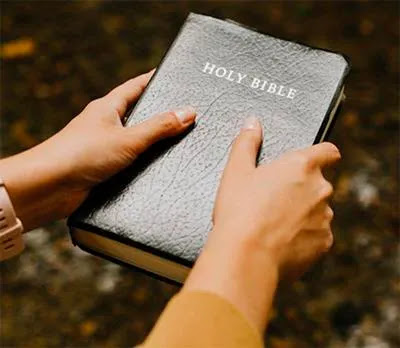By Pastor Benjamin Glaser - Posted at Thoughts From Parson Farms:
How the Christian's Keeping of the Commandments Shows the Gospel Grace
Howdy!Today in our catechism lesson we’ll be doing something a little different, and you’ll see why in a minute. One of the connections between the Shorter and Larger Catechism is that they both follow a similar pattern of getting to know God, clarifying what God has done for us in redemption, and then helpfully explaining the manner and way of sanctification so that the Believer can place the law in its proper place and duty. If there was any one issue that got the early church excited, and still provides fodder for journal articles, books, and blog posts it is how to deal with the law, especially the moral law, as justified men and women. Are we still to keep it? Do we use it merely as a guide and not as a rule of life? Is the keeping of the law tied into our remaining in the good graces of our Lord or does it really not matter how we observe His commandments?
These and many other questions will hopefully be helpfully answered in the words that follow.
Let’s go ahead and get to the Q/A’s for this morning:
Q. 98: Where is the moral law summarily comprehended?
A. The moral law is summarily comprehended in the ten commandments, which were delivered by the voice of God upon Mount Sinai, and written by him in two tables of stone; and are recorded in the twentieth chapter of Exodus. The four first commandments containing our duty to God, and the other six our duty to man.
Q. 100: What special things are we to consider in the ten commandments?
A. We are to consider, in the ten commandments, the preface, the substance of the commandments themselves, and several reasons annexed to some of them, the more to enforce themselves.
No, we aren’t skipping #99. We’ll take that one up by itself next week. In the meantime as you meditate on what the Divines are saying at the moment you’ll notice that there are a couple of features of the moral law that are worth exploring first. ...
These and many other questions will hopefully be helpfully answered in the words that follow.
Let’s go ahead and get to the Q/A’s for this morning:
Q. 98: Where is the moral law summarily comprehended?
A. The moral law is summarily comprehended in the ten commandments, which were delivered by the voice of God upon Mount Sinai, and written by him in two tables of stone; and are recorded in the twentieth chapter of Exodus. The four first commandments containing our duty to God, and the other six our duty to man.
Q. 100: What special things are we to consider in the ten commandments?
A. We are to consider, in the ten commandments, the preface, the substance of the commandments themselves, and several reasons annexed to some of them, the more to enforce themselves.
No, we aren’t skipping #99. We’ll take that one up by itself next week. In the meantime as you meditate on what the Divines are saying at the moment you’ll notice that there are a couple of features of the moral law that are worth exploring first. ...
